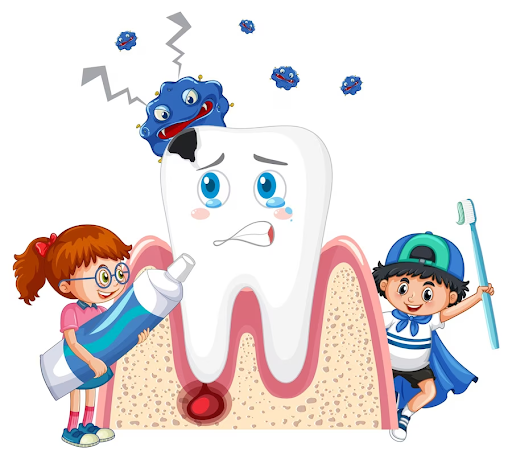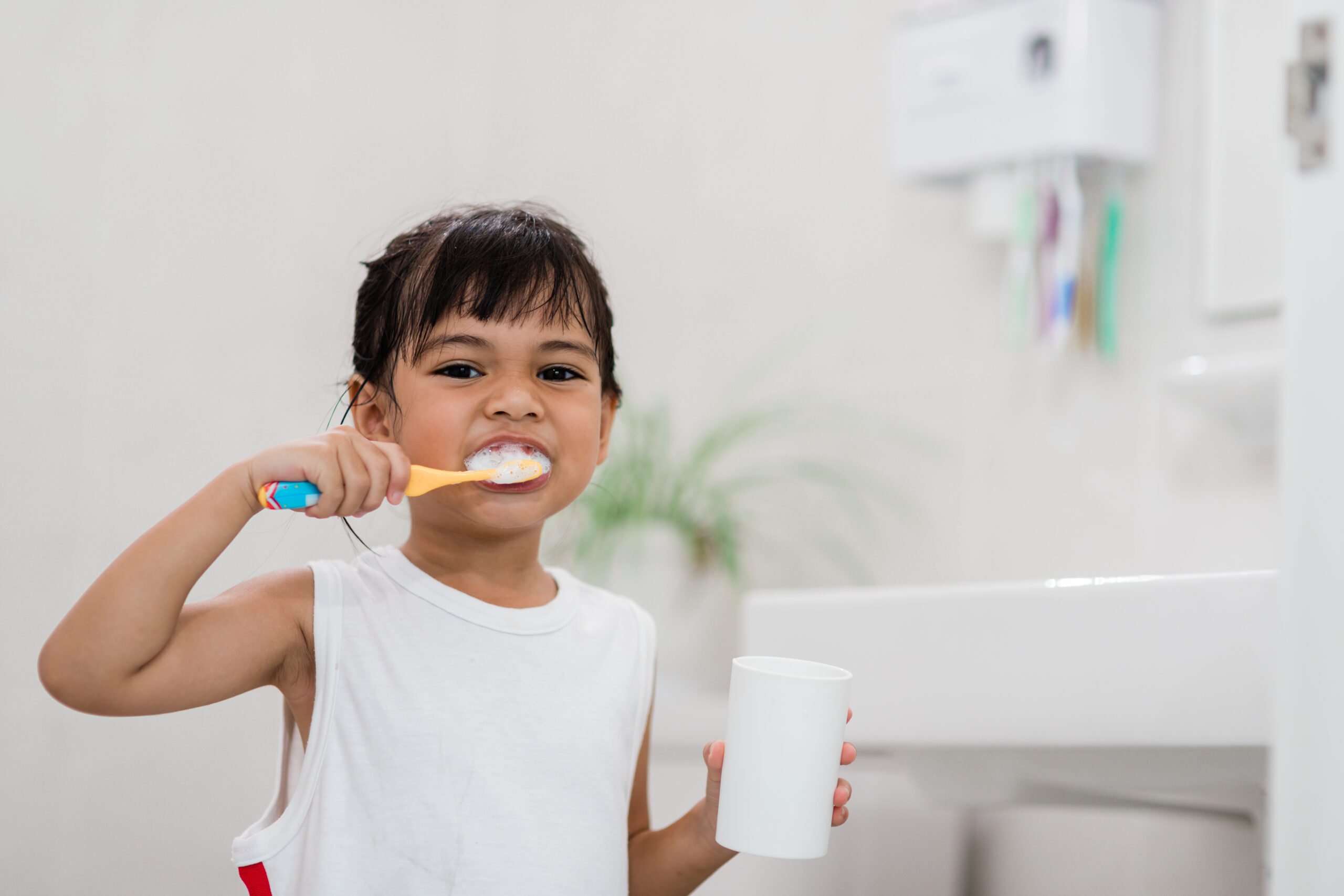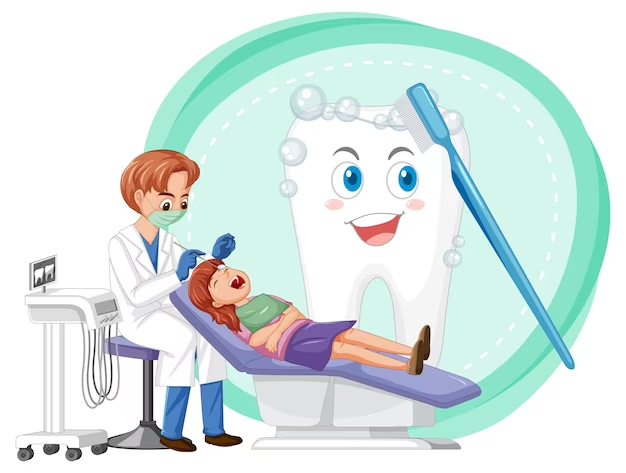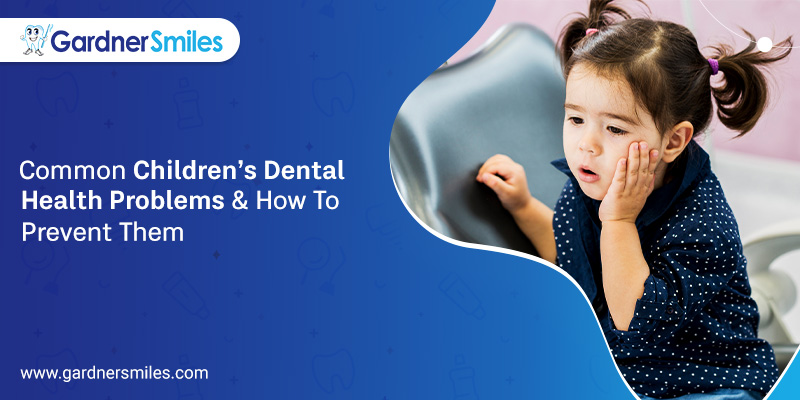What is a Pediatric Dentist?
Pediatric is a branch of dentistry concerned with children’s dental health. A pediatric dentist or pedodontist is qualified to care for the oral structures of infants, children, and adolescents. They cater to the children’s dental health concerning teeth, gums, and jaw. Moreover, a pediatric dentist ensures to create a comfortable environment to eliminate fear and dental anxiety among children.
What is the Role of a Pediatric Dentist?
The major role of a pediatric dentist is to ensure the good dental health of children, and for that, the professional may undertake the following duties;
- Diagnose and treat oral issues
- Observe the development of teeth and jaw
- Conduct X-rays and required diagnostic examinations for accurate interpretation
- Decide and provide interceptive or orthodontic treatment if required
- Suggest treatment according to the oral condition and to enhance children’s dental health
- Take quick actions to treat oral pain, infection, or trauma
- Execute surgical procedures in case of excessive cavities
What are the Common Children’s Dental Health Problems?

Jaw Pain
It is one of the common dental problems in children. You will often find kids rubbing their jaws or cheeks due to jaw pain. However, they may or may not talk about their difficulty in chewing or the pain in their jaw. Generally, these are symptoms of a misaligned bite which leads to discomfort. Apart from affecting their ability to chew, it also hinders their speech, sleep, and breath.
Therefore, our pediatric dentist always advises parents to bring their children for regular dental examinations, as jaw misalignment can lead to overbite, underbite, open bite, and crossbite.
Tooth Decay/Cavities
Children tend to love and eat a lot of sugar-rich foods, which puts them at risk of tooth decay. Moreover, kids tend not to brush or floss their teeth efficiently unless supervised, raising concerns for children’s dental health.
Cavities, as we know, are one of the common children’s dental health problems and are generally a result of plaque accumulation wherein the acid starts to eat or damage the tooth’s outer layer, which is enamel. The damage ultimately leads to decay. Therefore, parents must teach their children to floss and brush properly so that the plaque cannot accumulate regularly.
Sensitive Teeth
None can deny that tooth sensitivity is uncomfortable, painful, and distracting, which ultimately disturbs routine activities and focus. This tingling or stinging sensation after eating hot, cold, or any well-seasoned drink or food in children is generally a result of poor oral hygiene that includes brushing and flossing, sinuses, cavities, teeth fillings, grinding, losing baby or milk teeth, and more.
Hence, it is essential for you to keep track of children’s dental health and educate them about the same.
Pediatric Gingivitis/Gum Disease
It is a prevailing misconception that only adults can suffer from gum diseases, but unfortunately, children can also go through this. Gingivitis basically refers to gum inflammation wherein the gums are swollen, red, and can even bleed. It is usually considered a starting point of gum disease. Gingivitis can also progress to a severe form of gum disease if ignored or untreated.
One of the primary factors that give rise to this is poor dental hygiene which results in recession of the gums along with pain and swelling in the mouth. And the best way to prevent or avoid gingivitis is to brush and floss daily.
Dental Phobias and Anxiety
Feeling anxious or nervous while visiting the dentist is common in adults and kids. This feeling in kids makes it difficult for the parents to schedule regular oral checkups and cleaning, which further affects children’s dental health in several ways as they grow up.
You can help the little ones by making their dental visit a relaxing experience. The primary step is to choose a pediatric dentist, who has worked and knows how to deal with kids with dental anxiety. In addition, you can educate children about the importance of oral care routine and oral health while sharing some effective tips to manage dental anxiety. Moreover, you can also schedule your child’s dental appointment at regular intervals to reduce or manage dental phobias and anxiety.
Grinding
Bruxism, commonly known as teeth grinding, is among the common dental problems in children that refer to unintentional jaw clenching, which is common in kids. This clenching does not lead to complications in the majority of cases. However, it can affect the overall oral structure and health in the long run.
Moreover, the grinding can a lot of times accompany headaches, sensitive teeth, worn enamel, chipped teeth, and jaw, ear, or face pain; hence it is essential to identify and treat bruxism. Parents can help their children relax before they are off to sleep by encouraging them to listen to their favorite soft music, take a warm relaxing shower, and read things that interest them. Also, a visit to a pediatric dentist, in this case, is a must.
Bad Breath
It is one of the common dental problems in children, especially those with poor dental hygiene. Apart from oral hygiene, smelly foods, medications, gum disease, decay, breathing from the mouth, health conditions like tonsils or acid reflux, and dry mouth or dehydration are some common causes of bad breath in kids.
The best way to treat bad breath is to pay attention to the dental care routine, which includes
brushing and flossing twice regularly. However, make sure that the kids don’t brush aggressively, as it will do more harm than good. Also, don’t forget to replace your brush every 3 or 4 months as soon as it appears worn down.
Orthodontic Issues
It is common for children to develop orthodontic issues such as crowding of teeth, abnormal eruptions, underbites, crossbites, overbites, spaces in between, open bites, and increased overjet. The primary reasons for these orthodontic issues are either genetics or the jaw’s shape and size, which affect the growth of the oral structures.
These orthodontic issues can not only affect a smile but can also result in problems like sleep apnea and mouth breathing or chewing and speech issues. Therefore, it is recommended to schedule the very first pediatric appointment for your kid around seven years of age.
How to Prevent Children’s Dental Health Problems?

Several factors affect children’s dental health for their betterment; you should consider the following.
Fluoride Intake
Fluoride is a popular mineral in the world of dentistry, as it works wonders in enhancing the enamel’s strength. Moreover, it helps in the prevention of cavities and is absolutely safe for children as well. Several cities include fluoride in the drinking water supply, which is how a lot of kids intake fluoride. In fact, many water purifiers don’t filter fluoride, and it is advisable not to use the ones that feature reverse osmosis technology.
So, make sure that your child intakes sufficient fluoride either through water or external supplements, as it enhances children’s dental health. Before this, make sure to consult with our pediatric dentist to determine whether the child needs external fluoride supplements, and if yes, then which is an ideal option. Also, ensure your child does not swallow toothpaste or mouthwash with fluoride, as it can do more harm than good.
Brush And Floss
Paying attention to your child’s oral hygiene is a must, as several common dental problems in children can be solved with a proper oral care routine. Therefore, it is a given that your child should brush twice daily with a soft toothbrush. However, don’t choose a paste with fluoride unless the kid is old enough to spit.

Teach them an ideal way to spread paste throughout the gums, teeth, and tongue while they brush. It is also wise to assist children at least till the age of eight with brushing and flossing to reduce the risk of plaque accumulation. Don’t forget to change the toothbrush anywhere between three to six months.
Diet
Kids who consume many sugary foods and drinks are prone to developing cavities which is why it is essential for parents to keep a check on children dental health and their diet. Ensure to limit their intake of sugar-rich foods, drinks, juices, and sodas. Ask them to brush twice daily, as carelessness can result in cavities. However, you can permit them to chew on a limited number of sugar-free or sugary gums as it can help with the good breath, eliminating bits of food, more saliva production, jaw strengthening, and balancing acidic content in the mouth.
Oral Safety
Mouth injury has the potential to damage the teeth, gums, and supporting structures. Therefore, ensure that your kid has a mouthguard on while participating in sports or any physical activity carrying the risk of injury. The plastic-based oral guards help safeguard the cheeks, teeth, jaw, and lips. For the best protection and results, opting for a custom mouthguard that fits your child perfectly is wise.
Why are Pediatric Dental Services Important?

Pediatric dental services is to treat cavities, injuries, and crooked or misaligned teeth are essential to protect children’s dental health and prevent further complications. In addition, pediatric services like habit counseling, laser therapy, restorative care, extractions, sealants, flossing, crowns, fluoride treatment, root canal, diet & nutrition, and metal-free fillings are also essential to reduce the chances of decreased oral health and several oral diseases.
When to Take a Child to the Dentist?
The ideal and recommended age to take your child to the dentist is between six and eight. However, it is advisable to bring your kids for a dental check-up starting from the age of one at Gardner Smile. As it enables professionals to analyze the scope of potential oral problems concerning teeth or gums.
Moreover, issues like toothache, tooth or mouth infection, injury, and loss of permanent teeth or tooth demand immediate attention. So, keep track of your children’s dental health!





